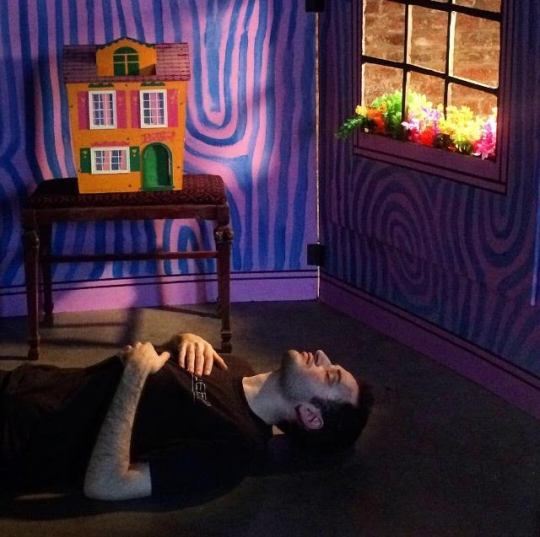
An Interview with Poet, Performer, and Critic Felix Bernstein
Felix Bernstein’s writing moves between the painfully autobiographical and the archly self-mocking. His latest work, Burn Book (Nightboat Press) is both joyous and hopeless—burnt out, but still full of an unquenchable flame.
As Bernstein prepares for his January show, Bieber Bathos Elegy at the Whitney Museum, which brings to life pages of his book, I talked to him about his relationship to evasion and oppositionality, and the implacable pornography of selfhood.
—Max Taylor-Milner
THE BELIEVER: Your books and performances move between the intensely personal and affective to ironic baroque melodrama through quick changes between mediums, characters, scenarios, and guises. You set up registers of emotion, and then disrupt them with quotation. Sometimes it seems as if you’re mocking the reader for following you into these maudlin places. Is this what you mean by bathos? What is the difference between pathos and bathos?
FELIX BERNSTEIN: For me, pathos is basic tragedy, which makes an appeal to the audience’s sentiment, raises your ecological and moral consciousness. Bathos is being trapped in pathos but not being able to appeal to the audience, the performance doesn’t work. This has become that generic thing called “narcissistic,” masturbatory performance art. I still try to do this. Maybe I’m just trying to fit in.
BLVR: It feels like you’re role-playing as yourself, dressing up in affects and using concepts as props. Would you say the book, as a whole, is a kind of psychodrama?
FB: Or a spoof. I don’t disagree with Godard calling Douglas Sirk’s films black comedies, but they are of course, also, melodramas. Or Charles Ludlum saying the audience laughs but he cries, when he plays Camille. To do Queer Theory revisionist readings of these things, and erasing Brecht’s influence—seeing only “bodies and affect,” simplifies the art. Art shouldn’t be mere normalizing sublimation or queer desublimation, which amounts to the same thing. should actually make your problems worse. Only then can the fantasy of endless role-playing and analysis be traversed. Art is, in this way, less delusional than psychoanalysis.
BLVR: One of the things that impressed me most about your last book, Notes on Post-Conceptual Poetry is its coherency, both how clearly you identify the targets of your criticism, and the unity of voice you address them with. But Burn Book…it’s all over the place. How self-conscious were you in assembling these poems? Were they intuitive? Did they have an overall structure?
FB: What’s the actual question? Do I know what I’m doing?
BLVR: Yes, but I find it hard to believe you would write this way without a reason. What, if...
You have reached your article limit
Sign up for a digital subscription and continue reading all new issues, plus our entire archives, for just $1.50/month.
Already a subscriber? Sign in




